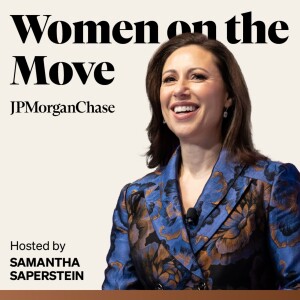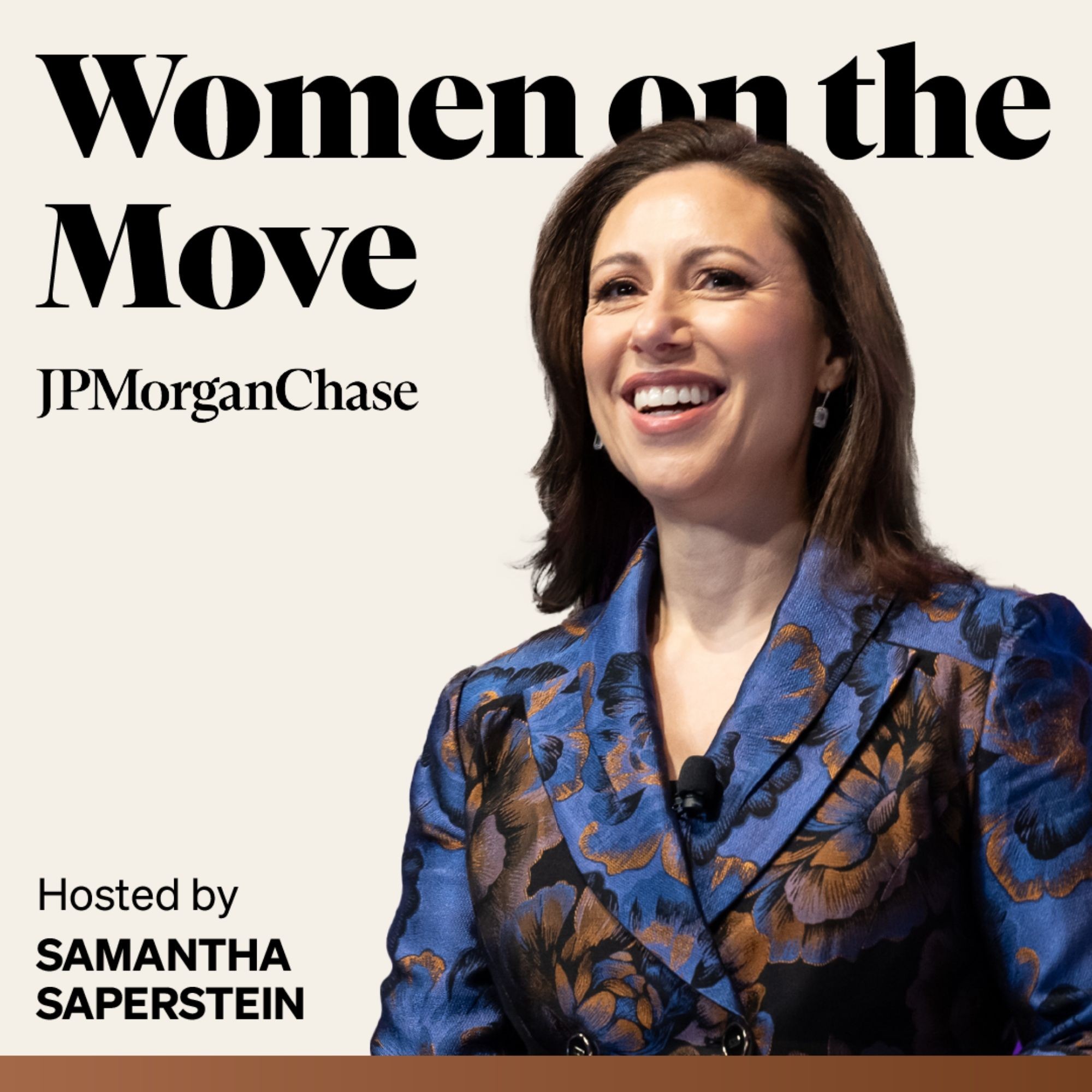Episodes

Thursday Jun 15, 2023
Thursday Jun 15, 2023
From the World Economic Forum in Davos, this episode of Women on the Move Podcast features Anita Bhatia, Assistant Secretary-General and Deputy Executive Director of UN Women. She shares the mission of UN Women with host Sam Saperstein, and they discuss the importance of public-private partnerships in the journey to gender equity. Anita also describes her personal commitment to educating women and how education influenced her own trajectory in life.
Small agency with a big mission
Founded just 11 years ago by Secretary-General Ban Ki-moon, UN Women is the newest agency in the UN system. Anita recalls sitting next to the Secretary-General at dinner one evening as he shared his first perception upon getting to the UN and realizing there were agencies dealing with children, hunger, trade - but nothing that was focused on solving one of the greatest problems in the world: gender inequality. “So he set up UN Women,” Anita tells Sam.
“We're a small agency, but I like to think that we punch above our weight, and my role is really a partnerships role,” Anita says. “It's a resource mobilization role, but it's also partnering both within the UN system and outside the UN system.” Anita says her focus is on making sure her team is growing UN Women's impact on solving for gender inequality by partnering with others “because we're too small and this problem is too big for us to do it alone.”
Anita says the goals of UN Women include women's economic empowerment, ending violence toward women, and increasing leadership representation. One critical factor is driving more finance toward the mission. “Public finance and private finance because without proper resourcing, we're never going to be able to change the state of the world,” she notes.
Anita says she learned about the importance of the public-private partnership approach during her time with the International Finance Corporation, the private sector branch of the World Bank Group. “Working in IFC, you understand something very fundamentally, which is that it's possible to do financially well while doing social good,” she says. “The other thing you understand when you work at the World Bank Group is the important role of the private sector in business in solving for development problems because governments just don't have enough money or bandwidth to do this.”
Personal commitment to educating women
But Anita says she brings more than her professional background to her role at UN Women. “I think the thing that gets me going is the idea of a girl getting educated,” she says. “It's because education has been so fundamental in my own life. I really do believe the research that education is the single biggest lever for development. When I think about a girl going to school, that inspires me, and I also do think about women who are victims of violence and about the need for the world to just do a hell of a lot more on that issue.”
Anita grew up in Kolkata, India, with a mother who she describes as a very progressive teacher who believed firmly in education. Anita was just 18 when her mother died, but before that, her mother had asked Anita’s father to make sure their daughters were educated and not married early as many young women in India were. “So my dad was a very strong feminist actually,” she tells Sam. “He kept his promise. He made sure the girls were educated.” After college, Anita told her father she wanted to go to the United States for graduate school. And while many Indian fathers kept their daughters near to help take care of them, he urged Anita to accept her scholarship to Yale.
Today, Anita calls on men to follow in the footsteps of her own feminist father. That’s because another key part of UN Women’s mission is male allyship. “We work with women and girls, but what's becoming even more important in our work is working with men and boys because this is a problem that is not a woman's problem, it's a whole of society, whole of government problem,” she says.
“I don't want men to be bystanders,” she adds. “Men need to call out bad male behaviors and toxic masculinity when they see it. And so in Davos, I've made a call to action to men and said, ‘You need to acknowledge that you guys actually still hold the power. You need to challenge negative masculinities and you need to share space. When you are on an all-male panel, it shouldn't be the women who are saying, Hey, we're not there. It should be the men saying, Where are the women?’”
Full transcript here .
Disclaimer: The speakers’ opinions belong to them and may differ from opinions of J.P. Morgan Chase & Co and its affiliates. Views presented on this podcast are those of the speakers; they are as of June 15th, 2023 and they may not materialize.


No comments yet. Be the first to say something!